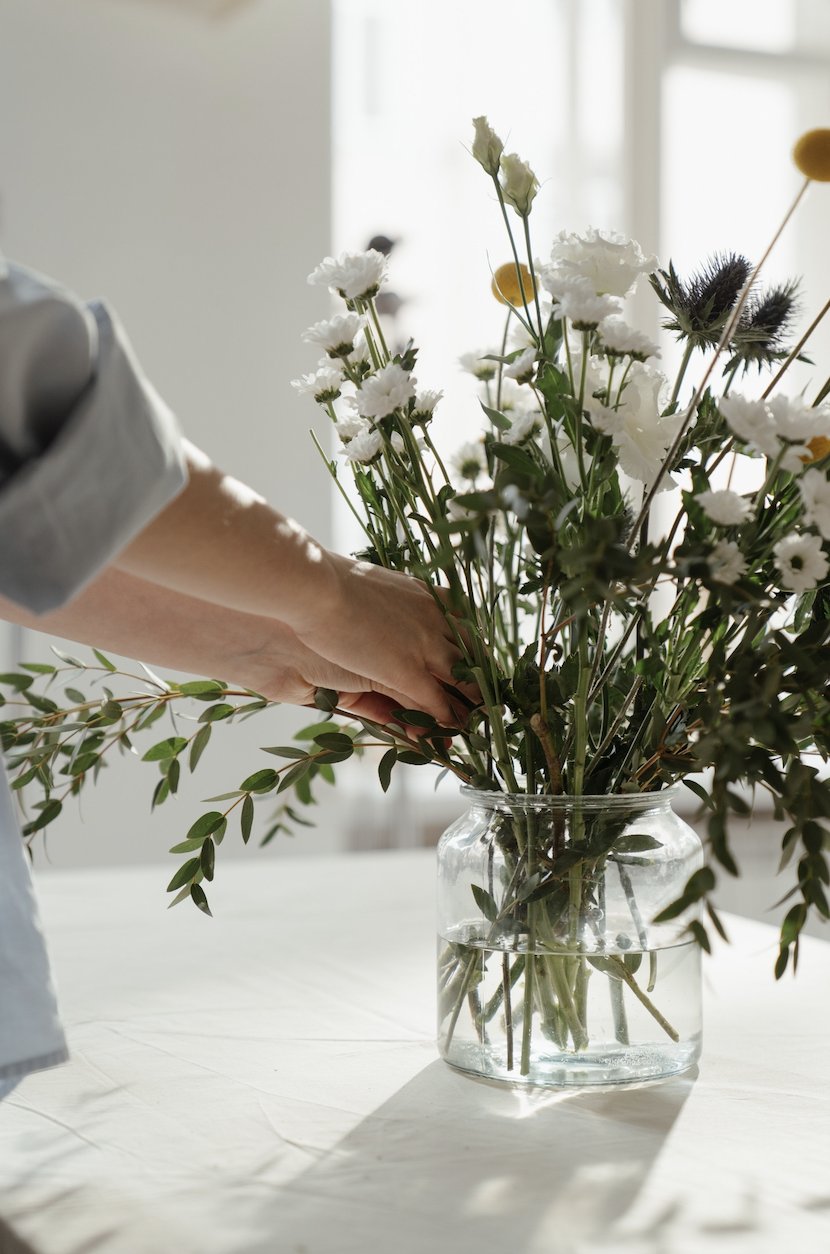Like with many things in life, there is a trick (or two) that you can use to ensure that your cut flowers survive longer.
Whether you’ve received a bunch of blooms as a gift or simply gotten some to brighten your space, you want them to last as long as possible. Try the following in order to ensure that they do…
Snip, snip
Cut the stems at an angle using a gardening shears (a sharp scissor will work too). Ensuring that you cut the stems at an angle instead of flat will create a larger surface area for water absorption as it won’t be flat against the bottom of your vase. You should re-trim the stems every few days to increase the longevity.
Don’t forget to prune
Be sure to remove any leaves from that may find themselves below the water line once you’ve placed your flowers in your vase. Not only will it make your bouquet look better (especially in a glass vase), but it will also help prevent bacterial growth from occurring. Ensuring that no leaves or petals have fallen into the water on a daily basis will also help prevent the development of bacterial rot.
Hydration is key
It goes without saying that your flowers need water to survive as long as possible despite being cut. Add room temperature water and the packet of flower food into a clean vase. Be sure to get the mixture right in order to get the best results. The sachets of flower food that are provided with most bouquets is usually enough for 1 litre of water. Adjust the amount of water and flower food as required, depending on the size of your vase and the stem of your flower.
Predominately woody stem flowers, like roses, tend to prefer a deeper drink of water, so filling your vase up two thirds of the way will work well. Flowers lthat have softer stems, tend to prefer shallower amounts of water, so filling your vase with water to just under halfway will work well.
Location, location, location
Where you place your lovely bouquet will also have a hand to play in how long you get to enjoy them. Temperature, drafts and fruit, yes fruit, can all impact your blooms’ lifespan.
Temperature
Cooler temperatures are best for the longevity of your cut flowers, so trying to avoid direct sunlight is ideal. Keeping them away from appliances that generate heat is also best, so try to avoid placing your arrangement on top of you microwave or refrigerator.
Drafts
Excess wind can result in your cut flowers dehydrating quicker than normal. Try to avoid placing them near to open windows or ceiling fans in order to prevent this.
Fruit
Placing your flower arrangement too close to fruit could also mean a knock to the lifespan of your flowers. This is because as fruit ripens, it releases small amounts of ethylene gas into the air which has a negative impact on your blooms.
Top tip
Flower food is an important tool when wanting to prolong the life of your cut flowers. A mixture of bleach, citric acid and sugar it creates the ideal environment for your flowers.
Although bouquets bought at the store usually come with a sachet of flower food, should you be keen to make your own, here’s how: Mix 1 teaspoon of sugar, 1 teaspoon of clear, unscented household bleach and 2 teaspoons of lemon or lime juice with a quarter cup of warm water and stir the mixture until fully dissolved.
ALSO SEE:
Photo by cottonbro

